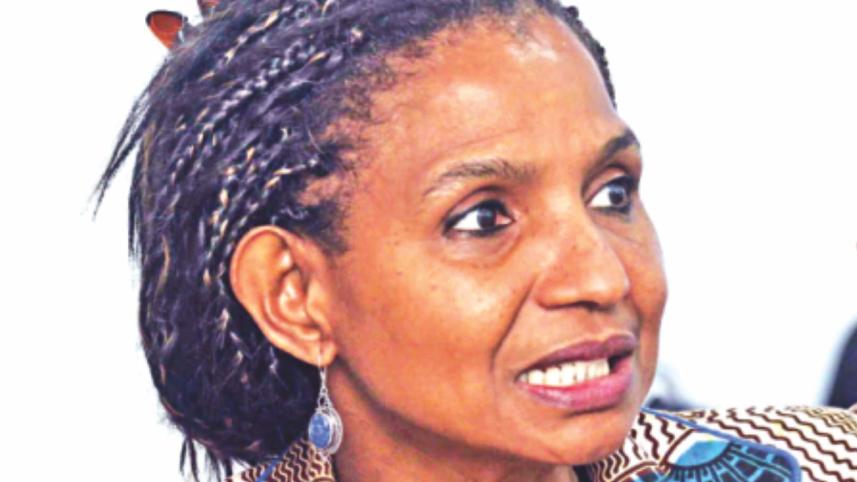Investing in girls can bring multiple dividends

Investment in health and education of teenage girls can multiply the development benefits, and protect women from pervasive violence, UNFPA Representative in Bangladesh Argentina Matavel Piccin has said.
“If you let her study, she can contribute much better to the economy…she can choose when to have children, how many and if to have them at all. She can be part of that human capital that the country so much needs,” she said.
Piccin recently spoke to The Daily Star and a few other journalists at the UN Population Found (UNFPA) office in the capital on the eve of World Population Day today. This year's theme is “investing in teenage girls”.
Teenage girls are particularly important because usually they are the “forgotten part of the population”, she said as the day is observed in the first year of the Sustainable Development Goals (SDG) era (2016-2030) that says none should be left behind.
“In the era of SDGs, unless we remember to bring along to invest equally in teenage girls, through which we actually invest in other parts of the population, we may not get what we want to get.”
Teenage girls go through puberty in the same way boys do. However, the difference is that if the girls are not informed and educated and make a bad decision or someone makes a bad decision for them, they end up being pregnant while they are still in their teens, she said.
“By being pregnant before they are ready, before their mind and body is ready, before they attain their full education, we are curtailing their potential,” Piccin said.
When they get pregnant, the child already has disadvantages because it is not mature enough. Neither can the teenage mother bloom full into her potential nor can the child.
STATUS IN BANGLADESH
In Bangladesh more than 50 percent of girls are married before they reach 18 years amid lack of proper sexual and reproductive education.
“As soon as she is married, she is out of school, she is getting pregnant. Then she has the responsibility in family. When you look at the sexual and gender-based violence survey, it shows that the violence is higher among the young married girls.
“They cannot defend themselves. They are still too young to articulate their thoughts, to mature their thinking.”
The UNFPA official said surveys showed there was a very low level of knowledge about sexual and reproductive health in Bangladesh among boys and girls. Both sexes end up learning through peers or internet and sometimes they do not get correct information, she said.
UNFPA has a project with the education ministry -- "Generation Breakthrough" -- to teach the teenage girls and boys from 10-19 years about positive gender norms and reproductive health in 350 schools.
Piccin said majority of teenage girls missed schools during their menstruation; it was because they did not have proper protection to protect themselves against shame in schools. They do not have running water in the toilets or separate toilets, she said.
There are stereotypes about what girls should learn and what they should not, Piccin said, adding that often boys went to the technical and vocational schools, while girls only went to learn sewing. In technology, engineering, science, the ratio of boys and girls is very different, skewed towards boys, she added.
WHAT SHOULD BANGLADESH IDEALLY DO?
The ideal situation would be for all schools to teach students comprehensive sexuality and reproductive education, Piccin thinks.
There should be incentives for girls to attend schools, and the schools should have proper infrastructure so that the girls did not miss classes while they have their periods, she said.
Investing in girls also means that the families understand that they need to send to school the girl too and delay her marriage, the UN official said.
For this to happen, a social movement through media, grassroots organisations and civil society is necessary, she said.
Piccin also recommended a budget increase for education and health of girls and women.
“Investment in teenage girls is something that societies do when they become enlightened. Bangladesh is moving in the right direction, but there is still a lot to be done.”




 For all latest news, follow The Daily Star's Google News channel.
For all latest news, follow The Daily Star's Google News channel.
Comments